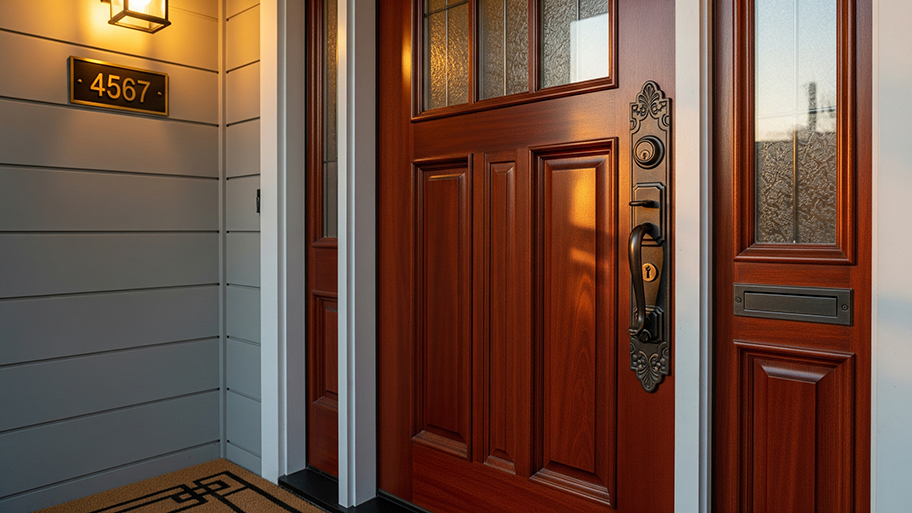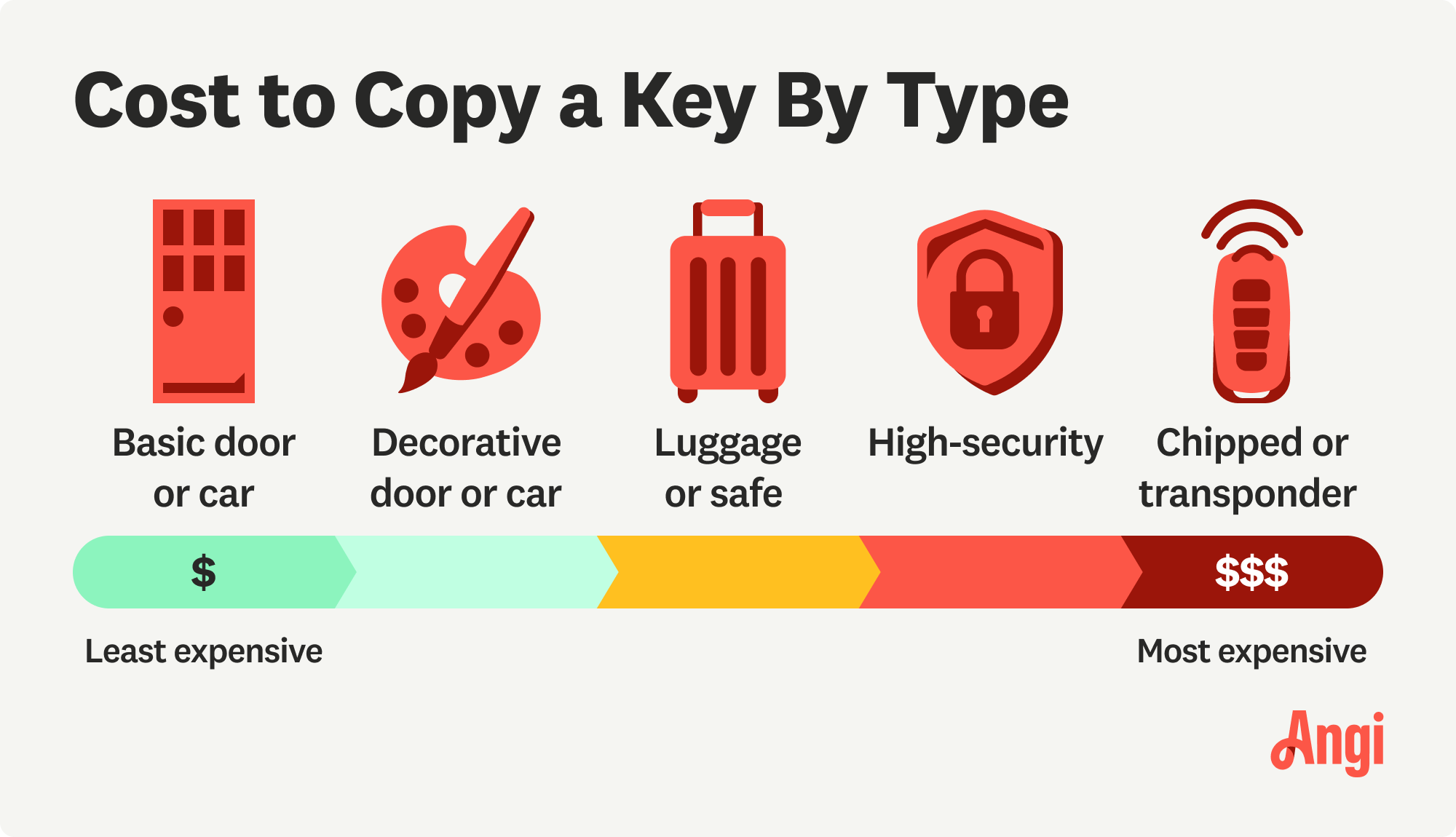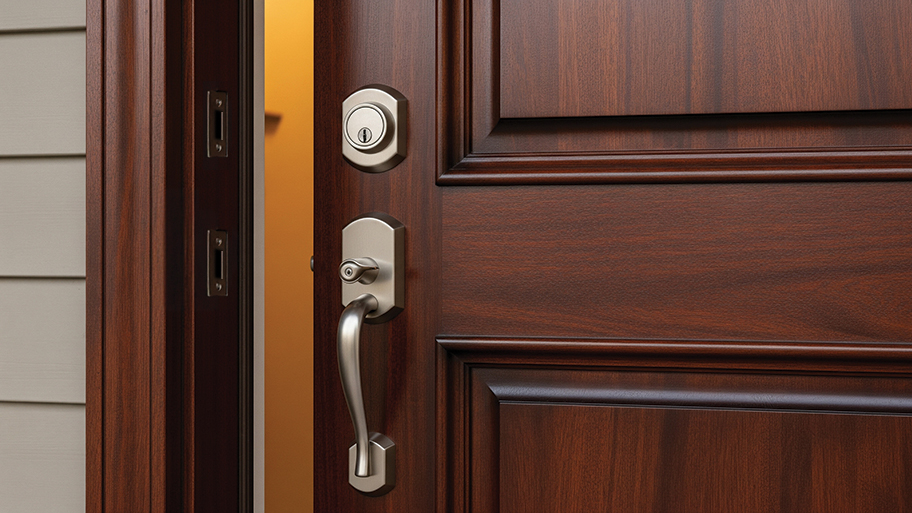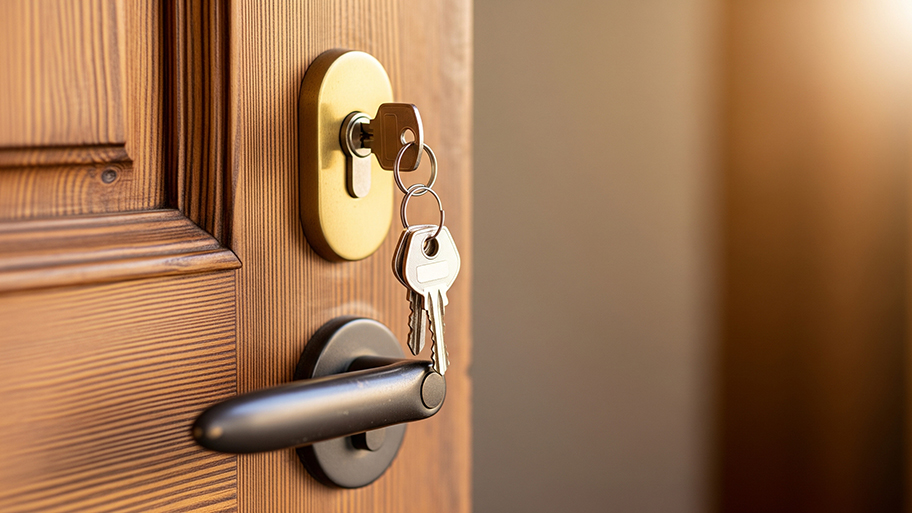
Wondering how much a locksmith costs? Discover locksmith prices, key cost factors, and tips to save on home lockout, rekeying, and installation services.
The average cost to copy a key is $20, ranging from $1 to $1,000, depending on key type, material, and service provider


How much it costs to copy a key depends on the key’s type, material, and where you choose to have it copied.
Copying a key involves creating a duplicate of an existing key for convenience, access, or security.
Upgrading or duplicating keys can help prevent lockouts and improve home security over time.
For basic house keys, self-service kiosks are a quick, affordable choice.
Advanced keys require a locksmith, with rates between $50 and $100 per hour.
This article was created using automation technology and thoroughly fact-checked and edited by an Angi Editor in accordance with our AI policy.
How much does it cost to copy a key? On average, homeowners pay $20 per key, with prices ranging from $1 for basic house keys to $1,000 or more for electronic car fobs. Costs vary by key type, material, and where you get the copy made. Understanding these factors helps you budget for your next key duplication. Having spare keys on hand saves time, money, and hassle when you need backup access or want to share entry with trusted people.

Let’s break down the specific factors that affect how much it costs to copy a key. Key type, size, material, labor, and preparation all play a role in the final price.
The type of key you need duplicated has the biggest impact on cost. Standard house keys are the most affordable, while high-security or electronic car keys require specialized equipment and authorization, increasing the price. Specialty keys, like antique or tubular keys, may also cost more due to their unique shapes.
| Key Type | Average Cost | Description |
|---|---|---|
| Standard house | $5–$15 | Most common, quick duplication |
| High-security | $20–$100 | Patented cuts, requires authorization |
| Car, basic | $30–$50 | Older cars, no electronics |
| Car, transponder | $50–$150 | Chip inside, requires programming |
| Car, fob/smart | $75–$150 | Electronic, dealership or locksmith only |
| Mailbox/safe | $5–$30 | Specialty blanks, some restrictions |
| Digital access | $250–$500 | Smart cards, digital fobs, advanced tech |
Key size and complexity also influence duplication costs. Oversized, unusually shaped, or intricate keys require special blanks and more time to cut, which can increase the price. The more complex or unusual the key, the higher the cost to duplicate.
Key material affects both durability and price. Most standard keys are brass or nickel-plated, which are affordable and long-lasting. Specialty or decorative keys, or those with electronic components, use costlier materials.
Choosing a more durable or decorative material can increase the cost, but may be worthwhile for frequently used keys or unique applications.
The cost to copy a key also depends on who does the work. Hardware store staff and self-service kiosks charge less for standard keys, while local locksmiths and car dealerships handle more complex or restricted keys. Locksmiths may charge an hourly rate ranging from $50 to $100 per hour, with minimum fees for on-site or emergency service. Programming electronic keys or fobs adds extra labor charges. Regional differences can also affect labor costs, especially in larger cities.
Mobile locksmiths charge a travel fee, and emergency services outside normal hours can cost significantly more.
Preparation before duplicating a key can add to the total cost. If you need a restricted or high-security key copied, you’ll have to provide proof of ownership or authorization. If your original key is lost or you're locked out, a locksmith can retrieve the lock code or use impressioning techniques, but this is more expensive and time-consuming. Cleaning or repairing a worn or bent key before duplication may also incur a small charge, especially for high-security or electronic keys.
Tipping is not required for key duplication, but it’s a thoughtful way to show appreciation for exceptional service, especially if the provider comes to your location or handles a complex job. For standard key copying at a hardware store or kiosk, tipping is not expected. For locksmiths or mobile services, a tip of $5 to $20 is customary for attentive or urgent service.
Several other factors can raise the cost to copy a key:
After-hours or emergency service fees if you need a key outside standard business hours
Travel or mobile service charges for on-site duplication
Minimum service charges for small jobs, especially from locksmiths
Decorative features, colored heads, or custom engravings on key blanks
Copying a key without the original, which requires using the lock code or impressioning
Security restrictions or legal requirements for restricted, patented, or high-security keys
Copying a key is a one-time cost, but some keys and locks involve ongoing expenses. Here’s what to consider for long-term budgeting.
Routine maintenance, like lubricating locks and cleaning keys, keeps them working smoothly and extends their lifespan. Over time, you may need to rekey or replace locks for security, or replace worn or bent keys to prevent breakage.
Electronic keys and fobs require periodic battery replacement, which can cost between $5 and $20. Programming fees for smart keys or digital access systems add to the lifetime cost. Some digital key systems also charge subscription or service fees for ongoing management or updates.
If a key breaks or malfunctions, expect to hire a locksmith for repair or replacement. Extracting a broken key from a lock typically costs $60 to $150, depending on complexity and provider. Repairing or replacing malfunctioning electronic keys or fobs may reach $100 to $400, especially if reprogramming is needed.
Some homeowner’s or auto insurance policies cover lost or stolen keys, though you may have to pay a deductible. Key replacement coverage or lockout protection plans can help offset costs, but check claim limits and exclusions carefully.
When weighing how much it costs to copy a key, you have two main options: do it yourself at a kiosk or hardware store, or hire a professional locksmith or dealership.
DIY requires little more than the original key and a few minutes of your time. DIY key copying, using self-service kiosks or hardware store machines, is the most affordable for standard keys. Expect to pay $2 to $7 per key. However, these machines cannot duplicate high-security, electronic, or restricted keys. For specialty keys, you may need blank key stock and a manual duplicator, which is an investment and requires skill.
Professional locksmiths and dealerships handle all key types, including those requiring programming or specialized authorization. Labor fees and equipment costs mean you’ll pay more, but you get expert results, warranty, and support if issues arise.

Many homeowners want more than just a basic duplicate. Each add-on enhances convenience, style, or security, but increases the total cost. Here are common add-ons:
Decorative or novelty key blanks
Key accessories such as keychains, tags, and covers
Bulk duplication
Programming additional car key fobs or remotes
Emergency lockout services
Rekeying locks or upgrading to high-security keys
Engraving or custom labeling
Save on key copying costs with these strategies:
Weigh your options: Compare prices at different providers, such as hardware stores, kiosks, and locksmiths. Avoid emergency or after-hours services when possible.
Try self-serve copying: Use self-service kiosks for standard keys to save on labor
Request bulk discounts when copying multiple keys.
Plan for basic keys: Bring your own key blank if the provider allows it, and standard key types when possible to minimize expenses.
Practice proper maintenance: Maintain keys and locks to reduce future duplication or repair costs.
Home is the most important place on earth, which is why Angi has helped more than 150 million homeowners transform their houses into homes they adore. To help homeowners with their next project, Angi provides readers with the most accurate cost data and upholds strict editorial standards. We extensively research project costs to develop the pricing data you see, so you can make the best decisions for you and your home. We rely on reputable sources, including the U.S. Bureau of Labor Statistics, academic journals, market studies, and interviews with industry experts—all to ensure our prices reflect real-world projects.
Want to help us improve our cost data? Send us a recent project quote to [email protected]. Quotes and personal information will not be shared publicly.
From average costs to expert advice, get all the answers you need to get your job done.

Wondering how much a locksmith costs? Discover locksmith prices, key cost factors, and tips to save on home lockout, rekeying, and installation services.

Uncover the cost of lock replacement. Discover labor, materials, and cost-saving tips for your next lock replacement project.

Discover the average deadbolt installation cost, price factors, and tips to save on your project. Learn how to budget for secure home upgrades.

Is your key stuck, and you need to know how to lubricate your lock? Look no further. This article outlines 10 ways to unstick a lock without calling a locksmith.

Know the 5 common signs your locks may have been tampered with and take immediate action to improve home security and prevent a burglary.

Chances are, if you need to know how to get out a key stuck in a lock, you need a quick and easy solution. Try these easy DIY options so you can move on.